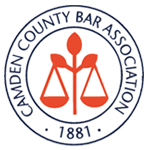New Jersey Death Benefits
Workers’ compensation insurance provides compensation to victims of work-related injuries. When a worker dies as a result of their work-related injury or illness, death benefits may be available to their family members that were dependent upon the victim for financial support, including spouses, children, and relatives that lived with the deceased employee. The laws on these benefits vary by state, but an experienced workers’ compensation lawyer can help the families of deceased employees claim the maximum level of death benefits they are legally entitled to receive.
Am I Eligible to Receive Workers’ Compensation Death Benefits?
Workers’ compensation laws differ by state, but eligibility requirements for receiving these benefits have a common denominator. Children under the age of 18 years old and adult children with mental or physical disabilities that prevent them from earning an income are considered dependents. Adult children that are enrolled full time in college or trade school may be considered dependents up to the age of 25.
In some states, a spouse must prove their financial dependence on the deceased worker. Eligibility depends on the spouse’s income and history of financial dependence. Other blood relatives may be entitled to death benefits if the deceased provided financial support prior to their death. Parents, siblings, and grandparents that either lived with the deceased or depended on them to provide food, shelter, or medical care may also be entitled to compensation.
Are My Loved One’s Injuries or Illnesses Compensable?
For a loved one’s injuries or illness to be compensable, their death must be directly related to a workplace accident or exposure to a toxic environment that led to their terminal illness. If a worker fell from a ladder and suffered a traumatic brain injury that led to their death, their dependents would be eligible for death benefits.
If the worker contracted an illness, such as mesothelioma from exposure to asbestos fibers, their dependents would be eligible for death benefits, even if the death occurred years after the exposure or diagnosis of the disease. Pre-existing health conditions may also be compensable if the work-related illness accelerated the condition. Medical records are imperative to proving eligibility. Compensation for death benefits typically amount to 70 percent of the deceased’s average salary.
How Do I File for Workers’ Compensation Death Benefits?
Losing a loved one is a traumatic experience, especially when they were responsible for supporting the family financially. When a workplace accident claims the life of an employee, they can leave behind young children, a spouse, dependent parents, and financial obligations, such as a mortgage, car payments, and tuition. When a loved one dies from a work-related illness, the time that they were sick can lead to a financial crisis for the family as well.
Fortunately, death benefits are available to provide the family with compensation toward funeral expenses and family support. The spouse, adult child, or other dependent relative should first contact the Human Resources department at the deceased’s place of employment to notify them of the death.
The person responsible for handling such claims will provide the family with the necessary paperwork to begin the claims process. The corporation is also responsible for filing paperwork, which is subject to strict deadlines. Missing mandated deadlines could result in a denial of benefits.
Our Workers’ Compensation Lawyers at Pietras Saracino Smith & Meeks, LLP Help Surviving Family Members Claim Death Benefits
If your spouse, parent, or close relative died as a result of a work-related injury or illness, call the workers’ compensation lawyers at Pietras Saracino Smith & Meeks, LLP today. We will fight for the benefits you rightfully deserve. Call us at 856-761-3773 or contact us online to schedule a free consultation today. Located in Cherry Hill, New Jersey, we serve clients throughout South Jersey, including Camden, Cinnaminson, Delran, Maple Shade, and Pennsauken.






